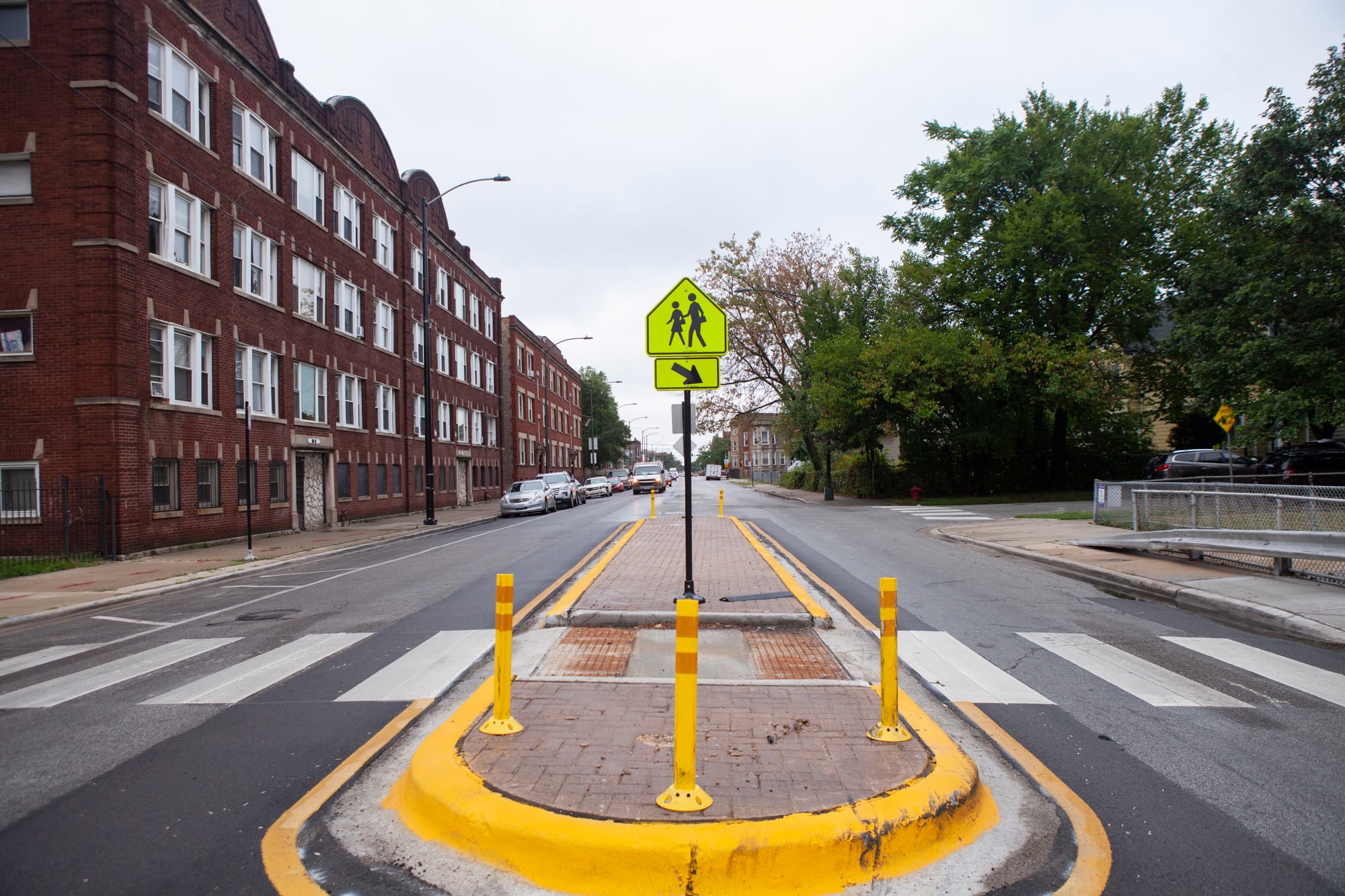Chicago is floating a plan to reopen school buildings to some special education students for in-person therapeutic services such as physical therapy or vision screenings.
The proposal would be Chicago’s first effort to reopen schools to students since schools reopened this fall in an all-virtual format — and a broader step toward addressing widespread concerns that remote learning is leaving special education students stranded without critical support.
Still, the city’s teachers’ union opposes the plan, whose timing isn’t clear, arguing that there is no safe option for in-person learning, either for teachers or vulnerable students.
The district’s proposal would offer only some students limited in-person services — hearing and vision screenings, special education evaluations, and occupational and physical therapy. Both the district and union have recognized that some therapeutic services are best offered in person, but they differ on whether a small-scale return to schools is justifiable with Chicago positivity rates hovering at 4.6%.
“The district’s highest priority is health and safety and CPS strongly believes that specific types of student services — including hearing and vision tests and physical therapy — can be delivered in-person safely and must be delivered in-person for our most vulnerable students to benefit,” said Emily Bolton, a spokeswoman for Chicago Public Schools.
What happens next could be a trial run for how the district will address safety concerns, and labor disputes, around any plans to return to in-person schooling in Chicago this year. The district started school remotely this fall, but has said that it will reopen school buildings for some in-person learning in early November if health officials deem it safe.
Since buildings closed in the spring, parents of children with disabilities have sounded the alarm, saying remote learning feels unsustainable and they aren’t able to meet the complex needs of their children the way a raft of school professionals could.
One concern for the school district to address is evaluating students for special education services and offering an individualized education plan, or IEP, eligibility meeting for parents within the required 60-day time frame.
This will require some clinicians to be in person to assist in identifying a child’s disability. Evaluations are required by federal law. In late April, the U.S. Department of Education did not recommend waiving any parts of the Individuals with Disabilities Education Act despite the coronavirus pandemic. Chicago is running out of time to meet this requirement.
Special education advocates also say giving families the choice of receiving some services in person would be a step toward supporting Chicago’s diverse learners through a time of uncertainty.
“There are students who cannot use online learning platforms due to their disabilities,” said Chris Yun, educational policy analyst at Access Living, an advocacy center for people with disabilities. “I think that the key is consent. If a student needs in-person services and her parent also consents to such services, there should be a way to receive in-person services.”
But union officials, speaking on a press call Monday, cited the 258 COVID-19 cases among Chicago Public Schools staff since March and said there was no safe option for clinicians working in schools. (It’s not clear how many of the cases stemmed from work on campuses.)
“My major concern is that we are placing high-risk students in a potentially compromising situation,” said clinician Sharon Gunn.
Bringing students back into buildings, even for select services, would be a significant logistical undertaking. Clinicians in Chicago schools often work with students at multiple schools, and have caseloads with more than 50 students, say union officials.
School officials may also have to consider how to safely bus students to schools for services. By federal law, schools are mandated to provide bus service to those with special needs.
One part of the conversation is a proposal to revisit individual clinicians’ caseloads and potentially reassign some students. That approach could help address concerns about workers moving between schools, but union leaders say such a shift also would undo the months of relationship building clinicians have done with parents so far.
“For the first time, as therapists, we have connected with parents in a way we’ve never had the opportunity to do before,” Gunn said. “We have become more creative and innovative in the way services are delivered.”
Some other Illinois school districts have prioritized in-person learning for children with disabilities, homeless students, and preschoolers in their reopening plans. How Chicago structures its reopening plan this fall will be closely watched. The district initially proposed a hybrid learning plan but scuttled it in August after coronavirus case loads resurged.
Every student in the district is learning virtually until November; however, school buildings are open for free meals and device distribution. Principals or a designated administrator, security guards, custodians, engineers, warehouse staff, and food service personnel have worked in school buildings since March.
For staff already working in schools, the district provides an online symptom screening questionnaire, requires masks (as per state law) and recently installed sneeze guards at every school. The district also allows employees who are not comfortable working in buildings, but whose job includes that requirement, to apply for special accommodations or a leave of absence.
Still, at least 258 school district employees have tested positive for COVID-19 since March and eight have died, though a district spokeswoman said workplace transmission was unlikely to have caused most of the infections seen in district employees or contractors.
The union is also in the middle of another dispute over the school district’s decision to require some clerks to return to campuses. The labor relations board is still accepting briefs on the issue this month.
Having trouble viewing the survey on mobile? Go here.







